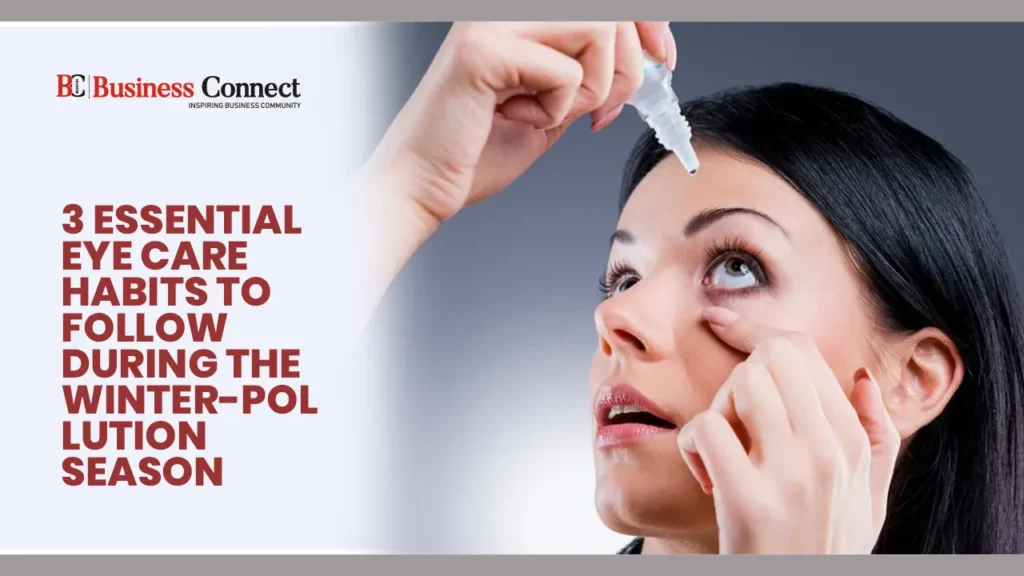As winter sets in, it brings along dry air, chilly winds, and a persistent haze of smog. This blend of cold weather and increased pollution can severely affect eye health, causing dryness, redness, irritation, and even infections. To keep your eyes comfortable and healthy during these harsh months, it’s important to adopt mindful protective habits — not just bundle up for warmth.
Dr. Neeraj Sanduja, MBBS, MS, Ophthalmologist, and Eye Surgeon, outlines three essential eye care practices to help safeguard your vision throughout the winter-pollution season.
1. Keep Your Eyes Moist and Hydrated
Cold outdoor air and heated indoor environments can deplete your eyes’ natural moisture, leading to dryness, itching, or a gritty sensation. To relieve discomfort, use preservative-free lubricating eye drops two to three times a day. Staying hydrated is equally important—drink plenty of water and include moisture-rich foods like cucumbers, oranges, and leafy greens in your diet.
If you spend extended hours in front of screens or under heaters, follow the 20-20-20 rule: every 20 minutes, look at something 20 feet away for 20 seconds. This simple habit helps relax your eye muscles and reduce digital eye strain.
2. Shield Your Eyes from Pollution and UV Rays
During winter, airborne pollutants, dust, and smoke particles can easily irritate your eyes and aggravate allergies or conjunctivitis. When stepping outdoors, wear protective eyewear or wraparound sunglasses to reduce exposure.
Many people underestimate the impact of UV rays in winter—UV radiation can harm your eyes even on cloudy days. Choose sunglasses with UV400 protection for complete defense against harmful rays. Once you return home, gently rinse your eyes with clean water to wash away any lingering pollutants.
3. Maintain Proper Eye Hygiene and Avoid Rubbing
Pollution particles can cling to your eyelashes and eyelids, increasing the risk of infection if not cleaned properly. Wash your face and eyelids thoroughly every night using a mild, non-irritating cleanser.
Avoid rubbing your eyes, no matter how itchy they feel—it can introduce bacteria or cause tiny scratches on the cornea. If irritation or redness persists, consult an ophthalmologist instead of self-treating with over-the-counter eye drops.
By following these three simple yet effective habits, you can keep your eyes healthy, comfortable, and protected throughout the winter-pollution season.



